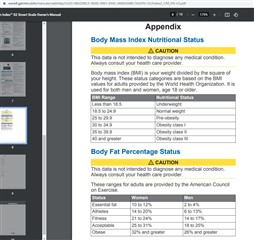as the other thread is closed by Garmin-AmberD
It can't be that the same fat value is always displayed, it can't be normal, all other values change, the fat value is always 7 for every measurement, regardless of which activity class you choose?
Garmin's explanations cannot explain it in that way!



